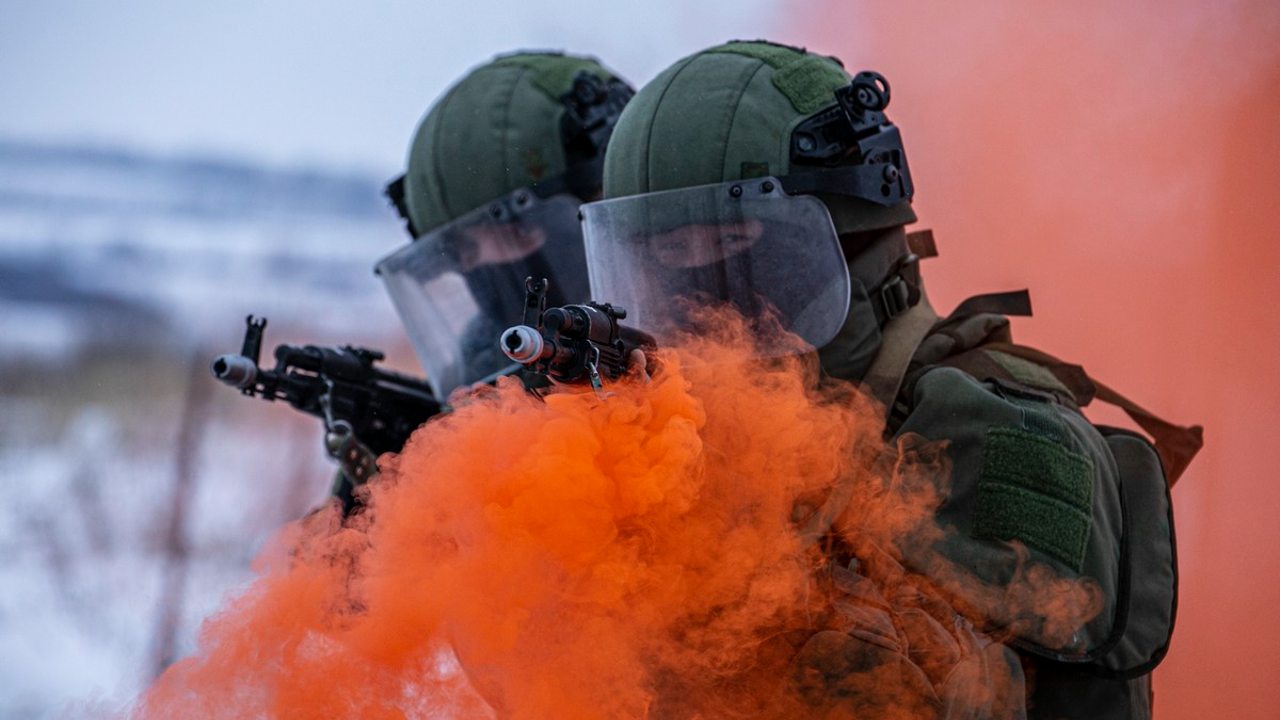When US President Joe Biden told reporters that the United States would not respond to a minor Russian incursion into Ukraine, the White House was quick to clarify. National Security Council spokeswoman Emily Horne tweeted that Biden’s remark referred to the “difference between military and non-military/para-military/cyber action by the Russians.”
But an invasion of Ukraine by uniformed Russian troops is only one potential means to the end. There are numerous other weapons in Russia’s hybrid armory, including the fomenting of political tensions and possibly even — as the British Foreign Office recently warned — of installing a client leader in Kyiv. Russian behavior, both from its political leadership and mouthpieces in the media, as well as officially sanctioned groups of computer hackers, are currently demonstrating (as they have in the past) that such measures will muddy the distinction between military and non-military action.
As Western media has covered Russian aggression, troop build-up, and potential false flag operations, Russian media has provided its audience with an almost exact mirror. Denis Pushilin, head of the separatists in Donetsk, appeared on Russia’s leading late-night talk show to warn of 120,000 Ukrainian troops purportedly preparing a brutal invasion of Donbas. Sergei Shoigu, Minister of Defense, accused the United States of deploying chemical weapons to Ukraine. Moskovsky Komsomolets, Russia’s second newspaper by circulation, published a story on Ukrainian plans to target vital infrastructure and chemical plants to justify an invasion.
This author wrote last month on how the supposed threat of incipient genocide of Russians has in the past provided an imperative for intervention. The supposed threat to ethnic Russians in Donbas, hundreds of thousands of whom now have Russian citizenship, is still key. Konstantin Gavrilov, head of the Russian delegation in Geneva, declared that “we will not tolerate when our citizens are attacked.” Legislators introduced a bill to the Duma to recognize the independence of the Russian-occupied occupied Donetsk and Luhansk regions. In the case of the bill’s passage, “a war will become a direct necessity” according to one of its proponents.
The parallels to Georgia in 2008 are striking: there, too, Russian media portrayed an unbowed neighbor as preparing for genocide. When Russia invaded to remove a liberalizing president, the global response was near-universal condemnation. “[W]e lost the information war,” concluded a Defense Ministry spokesman.
Afterward, Russia revamped its international propaganda machine to great effect. By 2014, RT was one of the world’s most influential online news outlets, boasting YouTube’s largest news network and was the leading channel in English, Spanish, and Arabic, as well as one of the top five in German and French. After Ukrainian protestors ousted their pro-Russian president in 2014, a meme went viral in the United States accusing the American government of buying a coup.
Although RT’s position has waned slightly as domestic media outlets have caught up, Russia’s ability to sell its narrative has only grown. Alternating isolationism and foreign policy missteps have cut American clout and credibility. China’s rise has seen a more eager acceptance of the Russian worldview, such as last month when president Xi Jinping denounced unrest in Kazakhstan as a ‘color revolution.’
Russia need not convince the whole world, or even much of the world, that its actions in Ukraine will be defensive and non-military. It can also rely on European countries’ selfishness: any new Western sanctions would send natural gas prices yet higher (the issue is already causing serious alarm in many states) so some may be inclined to trade long-term stability for a short-term reprieve from economic hardship. Already, Germany has refused to send weapons to Ukraine or allow Estonia to do the same.
Showing that NATO states are unable to coordinate even on economic, much less military, matters, would be as great a victory for Russia as ousting Ukraine’s President Volodymyr Zelenskyy. NATO must be prepared for these attempts to use ambiguity to achieve Russia’s goals and must say so unambiguously.
Ben Dubow is a nonresident fellow at CEPA and the founder of Omelas, which specializes in data and analysis on how states manipulate the web.
Europe’s Edge is CEPA’s online journal covering critical topics on the foreign policy docket across Europe and North America. All opinions are those of the author and do not necessarily represent the position or views of the institutions they represent or the Center for European Policy Analysis.





